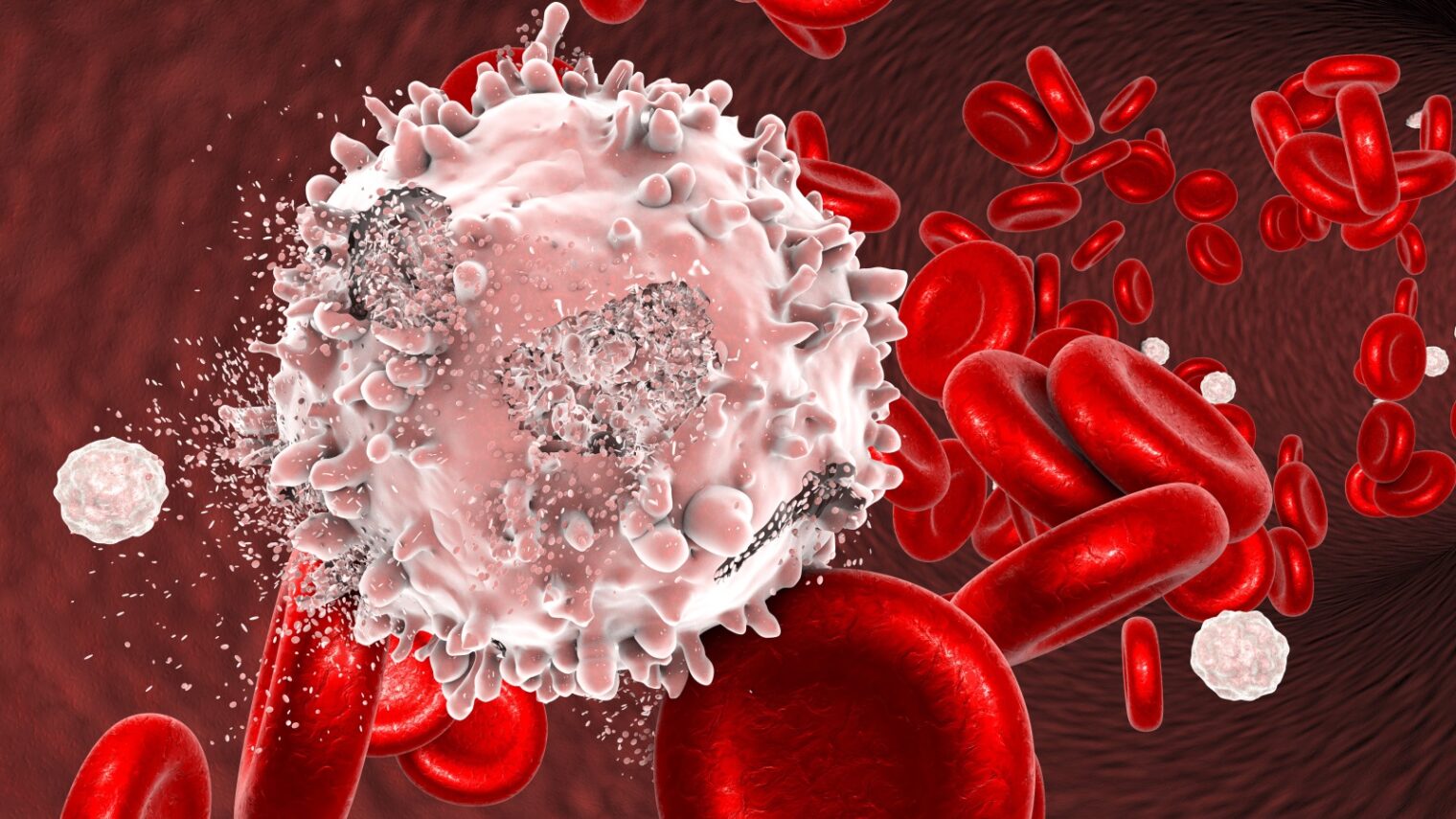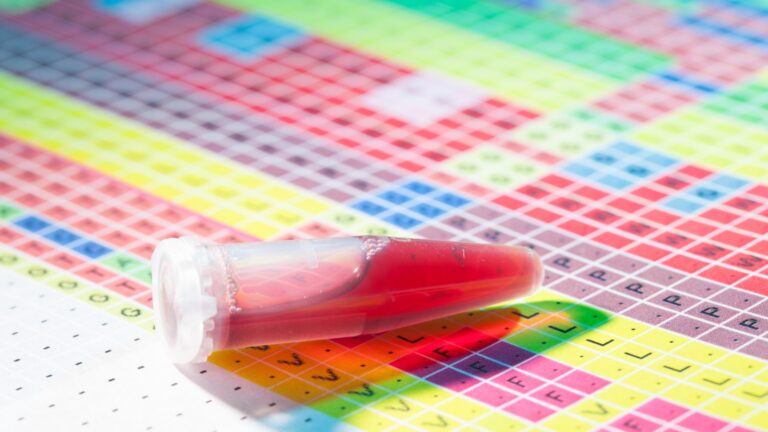Prof. Yinon Ben-Neriah and his research team at the Hebrew University of Jerusalem’s Faculty of Medicine have developed a new biological drug showing a cure rate of 50 percent for lab mice with acute myeloid leukemia — one of the most aggressive cancers.
“We were thrilled to see such a dramatic change even after only a single dose of the new drug. Nearly all of the lab mice’s’ leukemia signs disappeared overnight,” said Ben-Neriah.
Published last week in the scientific journal Cell, the study is especially significant because treatments for leukemia haven’t progressed much in the past 40 years.
Acute leukemia is defined by the US National Cancer Institute as “a rapidly progressing cancer that starts in blood-forming tissue such as the bone marrow, and causes large numbers of white blood cells to be produced and enter the bloodstream.” Leukemia may affect red blood cells, white blood cells or platelets.
In the abnormal leukemic blood cells, a large number of varied proteins are produced. They work together to provide the cancerous cells with the ability to grow rapidly and to overcome the assault of chemotherapy.
Cluster-bomb effect
Up until now, most of the biological cancer drugs used to treat leukemia target only individual leukemic cell proteins. However, during “targeted therapy” treatments, leukemic cells quickly activate their other proteins to block the drug. The result is drug-resistant leukemic cells that quickly regrow and renew the disease.
In contrast to this ineffective approach, the new drug developed by Ben-Neriah and his team functions like a cluster bomb. It attacks several leukemic proteins at once, making it difficult for the leukemia cells to activate other proteins that can evade the therapy.
Furthermore, this single-molecule drug accomplishes the work of three or four separate drugs. If it were to be used in humans, one of its potential advantages would be to reduce the number of different drugs – each with its own side effects — to which cancer patients would need to be exposed.
The other promising aspect of this new drug is its ability to eradicate leukemia stem cells. This has long been the big challenge in cancer therapy and one of the main reasons that scientists have been unable to cure acute leukemia.
American company BioTheryX recently bought the rights to this promising drug from Hebrew University’s technology transfer company, Yissum. In coordination with Ben-Neriah’s research team, the company is applying for FDA approval for Phase I clinical studies in humans.
Ben-Neriah and co-authors Waleed Minzel and Avanthika Venkatachalam work at the Lautenberg Center for Immunology and Cancer Research, Institute of Medical Research Israel-Canada, Hebrew University-Hadassah Medical School. Also contributing to the study and paper were Avner Fink, Eric Hung, Guy Brachya, Ido Burstain, Maya Shaham, Amitai Rivlin, Itay Omer, Adar Zinger, Shlomo Elias, Eitan Winter, Paul E. Erdman, Robert W. Sullivan, Leah Fung, Frank Mercurio, Dansu Li, Joseph Vacca, Nathali Kaushansky, Liran Shlush, Moshe Oren, Ross Levine, Eli Pikarsky and Irit Snir-Alkalay.
The study was funded by Dr. Miriam and Sheldon Adelson Medical Research Foundation, Horizon 2020 – European Commission, The Israel Science Foundation – Centers of Excellence, and the Israel Cancer Research Fund.















